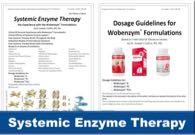
Inflammation & Your Hormones
While different hormone related problems may be due to imbalances with one of more hormones, inflammation is a common affliction that is actually involved with every hormone related problem. This is due to the systemic nature of inflammation, and its ability to affect every part of the body. Systemic inflammation has been well demonstrated as a cause in a number of hormone and reproductive related conditions including Autoimmune thyroid disease (Hashimoto’s), diabetes (Type 1 & Type 2), fibrocystic breast disease, infertility (both male and female) as well as pelvic inflammatory disease and prostatitis. Inflammation is a complex biological process in which the body protects itself from foreign substances, such as bacteria, yeast, and viruses and some chemicals. Normal amounts of inflammation are required to protect the body, remove the injurious substance, and to initiate the healing process for the tissue. So, inflammation is actually part of the regenerative process. Without inflammation, wounds and infections would never heal and there would be progressive destruction of tissues.
However, when inflammation is out of control, tissues throughout the entire body are at risk of being hurt by the inflammation. Generalized, out of control inflammation can affect any part of the body and interfere with the optimal health throughout the body including joints, muscles, heart, digestive system, the brain, and the entire endocrine system. This generalized, out of control inflammation is referred to as systemic inflammation.
When inflammation is out of control it can result in autoimmune diseases in which the body is attacked by the immune system. Autoimmune diseases are one of the worst complications of systemic inflammation and can result in debilitation conditions such as rheumatoid arthritis, autoimmune thyroid disease (Hashimoto’s thyroiditis) and Bechet’s disease.
In addition to autoimmune disease, systemic inflammation can result a decreased of cell to respond to hormones and other messenger molecules. This can contribute to the development of hormone resistance, which may present as type 2 diabetes and thyroid hormone resistance. In addition, generalized aches and pains and generalized fatigue may be due to systemic inflammation.
Systemic Inflammation & Systemic Enzyme Therapy
Systemic inflammation can be controlled by an anti-inflammatory diet, Systemic Enzyme Therapy, and the anti-inflammatory properties of the Hormone Specific™ Formulations.
Systemic Enzyme Therapy involves using specific enzyme combination which are taken away from meals, so that they have a systemic effect on immune system function. The most effective formulations to control systemic inflammation without suppression of the immune system are the Wobenzym® formulations, which were developed over 50 years ago. Clinical research from around the world has shown these formulations are effective in treating a number of conditions caused by systemic inflammation. You can learn more about the Wobenzym® formulations, including a free eBook, and detailed dosage guideline by reading more about Systemic Enzyme Therapy.

Next: Learn about: Phytotherapeutic Management of Endocrine Dysfunction
This article is part of the Educational Module on Hormone Health.
